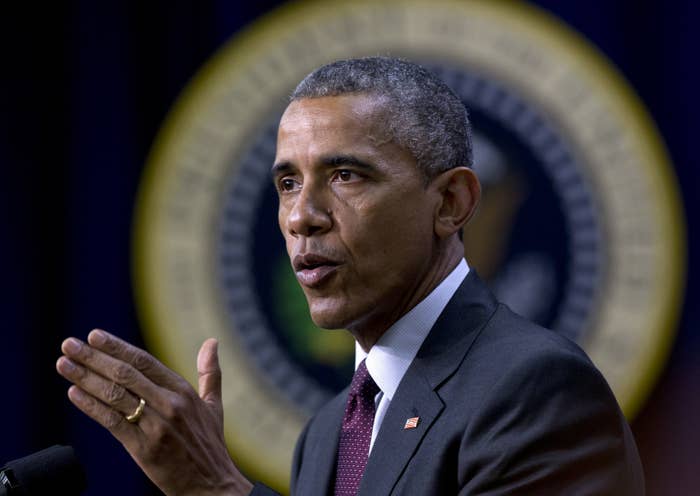
In the next few weeks, President Obama is expected to commute sentences for dozens of prisoners who are serving lengthy terms on nonviolent drug convictions, according to a New York Times report. With the scrawl of his clemency pen, the Times said, Obama will “probably commute more sentences at one time than any president has in nearly half a century.”
Since entering the Oval Office, Obama already distinguished himself from most of his predecessors by commuting the sentences of 43 prisoners, according to U.S. Justice Department records.
The most recent and largest group was in March, when he commuted terms of 22 drug offenders whose sentences are now scheduled to end July 28. Among them, Theresa Brown of Florida had been sentenced to life in prison for conspiracy to distribute crack cocaine
With this next batch of commutations, Obama is poised to shorten terms of more prisoners than any president since Lyndon B. Johnson left office in 1969.
Since Obama took office, the federal government has inched toward reducing the federal prison population, which has ballooned since additional penalties were baked into drug laws in the 1970s and ‘80s. The laws and enforcement practices have disproportionately incarcerated black and Latino people, and clemency is a unique executive power that can allow Obama to tip the scales of justice toward parity.
Still, the dozens of people reportedly being released “is tiny compared to the broader numbers” of federal inmates serving sentences for drug crimes, Ethan Nadelmann, executive director of the Drug Policy Alliance, told BuzzFeed News.
But, he said, “This is not something that should be dismissed.”
“This is part and parcel of a move during Obama's second term to reduce the prison population ... and of the broader effort to achieve racial justice," said Nadelmann, whose organizations supports widespread drug law reforms.
Perhaps more striking than the numbers of shortened sentences are the number of incarcerated people who have requested presidential clemency since the Obama administration took an active role inviting more people to apply.
Last year, James M. Cole, a deputy U.S. attorney general at the time, outlined criteria for prisoners who could be freed by the president: generally nonviolent inmates who have already served more than a decade in prison on good behavior.
Figures posted currently by the Justice Department show 16,911 people have applied for clemency under Obama, roughly double the number that applied under President George W. Bush, who held the previous record for clemency petitions. The Times puts the number even higher, at 30,000 applications.
The willingness to grant clemency reflects a wider effort in the federal government since Obama was elected — in particular a trend set by former U.S. Attorney General Eric Holder — to tackle mass incarceration. In recent years, the administration pushed to narrow the disparities in drug sentencing between powdered cocaine and rock-form crack cocaine.
The Sentencing Guidelines Commission, an independent judicial agency, voted in 2014 to reduce sentences for nonviolent drugs, applying the rules retroactively to more than 40,000 prisoners.
“To the extent that the system for letting people out early is stuck in bureaucratic channels, this [push for clemency] provides another avenue and potentially puts pressure on the system to move more quickly," Nadelmann said.
With nearly a year and a half remaining in office, Obama has commuted more prison sentences than all but one of his last five predecessors. Sworn in roughly 76 months ago, Obama has commuted 43 sentences.
By contrast, in their 96-months terms: George W. Bush granted 11 commutations, Bill Clinton granted 61 commutations, and Reagan granted 13 commutations.
Both serving four years, George H.W. Bush commuted 3 sentences, while Jimmy Carter commuted 29.
Past presidents tend to use their clemency pen most aggressively in the sunset of their terms, Doug McVay, a board member and research director of Common Sense for Drug Policy, told BuzzFeed News.
“There is a big push to get people to apply [for clemency] because we expect that he would be more amenable," McVay said of Obama. "Other presidents seem to do better toward the very end, so we can hope that is what happens with him — that he follows suit.”
